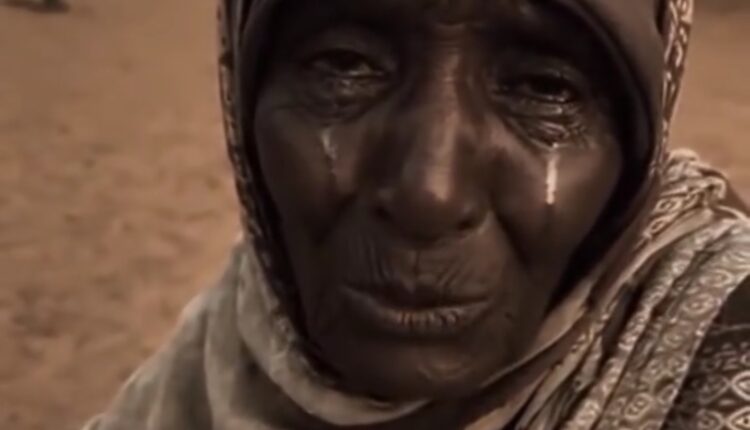تقرير: السودان.. حين يصبح البقاء على قيد الحياة معجزة #السودان #الفاشر #أنقذوا_السودان #SudanIsBleeding #DarfurBleeds #StandWithSudan
تقرير: السودان.. حين يصبح البقاء على قيد الحياة معجزة
#السودان #الفاشر #أنقذوا_السودان #SudanIsBleeding #DarfurBleeds #StandWithSudan
كتبت صفاء الليثي
تقرير: السودان.. حين يصبح البقاء على قيد الحياة معجزة
#السودان #الفاشر #أنقذوا_السودان #SudanIsBleeding #DarfurBleeds #StandWithSudan
في السودان، لم تعد الحرب مجرد صراع على السلطة، بل أصبحت حربًا على الإنسان نفسه.
المدن تحولت إلى رماد، والأرض تبتلع أبناءها.
في دارفور وكردفان والخرطوم، يموت الناس ببطء، ليس فقط من الرصاص، بل من الجوع والعطش والخوف والخذلان.
هناك، حيث تسقط البيوت على أصحابها وتتحول أصوات الأطفال من ضحك إلى بكاء مكتوم، ينام الناس على الأرض وقلوبهم ترتجف من كل صوت في الليل.
نساء يلدن على التراب بلا مستشفى ولا قابلة، أطفال يبحثون عن قطعة خبز بين الركام، وشيوخ يجرّون أجسادهم الهزيلة بحثًا عن ماء ملوث ليبقوا أحياء يومًا آخر.
وفي الوقت الذي تحترق فيه الفاشر، تتوزع العائلات بين المخيمات، جوعى، عراة، مهددين بالوباء والموت في أي لحظة.
حتى المقابر امتلأت، فصار الناس يدفنون موتاهم في الحدائق، أو تحت الأشجار، أو في بقايا البيوت.
الذين نجوا من الموت لم ينجوا من الرعب؛
الاغتصابات الجماعية للنساء والفتيات أصبحت سلاحًا لإذلال العائلات وكسر المجتمعات.
ومن نجا من الجوع يخاف من الطلقات، ومن نجا من الطلقات يخاف من الغد.
لم يعد هناك فرق بين الليل والنهار، فكل وقت يحمل موتًا جديدًا.
المساعدات لا تصل، ولا صوت للمنظمات، ولا كاميرات تنقل الحقيقة.
السودان يُباد بصمت، والعالم يراقب وكأنه لا يرى.
هذه ليست مأساة وطن بعيد، بل مأساة إنسان يصرخ في وجه العالم:
“نحن بشر.. فلا تتركونا نموت مرتين، مرة بالرصاص ومرة بالنسيان.”
….
In Sudan, the war is no longer a struggle for power — it has become a war against humanity itself.
Cities have turned to ashes, and the earth is swallowing its people.
In Darfur, Kordofan, and Khartoum, people are dying slowly — not only from bullets, but from hunger, thirst, fear, and abandonment.
There, where homes collapse over their owners and children’s laughter turns into muffled cries, people sleep on the ground with hearts trembling at every sound in the night.
Women give birth on the bare earth without hospitals or midwives.
Children search for a piece of bread among the ruins.
Elderly men drag their frail bodies in search of contaminated water to survive one more day.
While El Fasher burns, families scatter between camps — hungry, barefoot, and haunted by disease and death.
Even the cemeteries are full, so people bury their loved ones in gardens, under trees, or among the ruins of their homes.
Those who escaped death did not escape terror.
Mass rapes of women and girls are used as weapons to humiliate families and destroy communities.
Those who survive hunger fear the bullets, and those who survive the bullets fear tomorrow.
There is no longer a difference between night and day; every hour brings new death.
Aid does not arrive.
The organizations are silent.
The world watches as Sudan is erased in silence.
This is not the tragedy of a distant land — it is the tragedy of humanity itself.
A cry from the heart of Sudan says:
“We are human. Do not let us die twice — once by bullets, and once by forgetting.”

